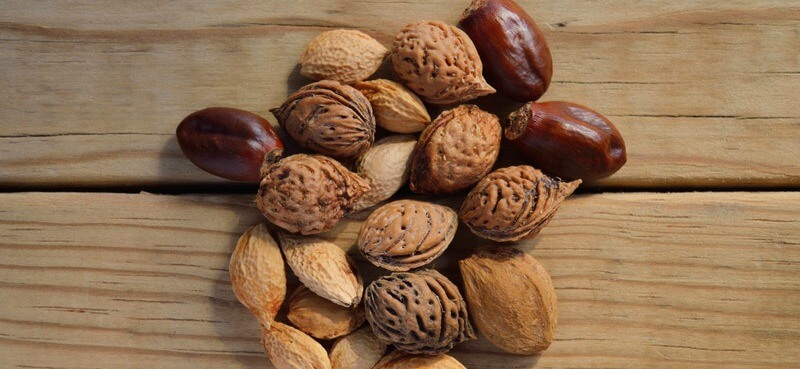If you suffer from debilitating migraines, prevent them with magnesium!
You are not alone! In the United States, more than 37 million people (13% of the population) suffer from regular migraines. Of these, 11 million have chronic migraines that result in moderate to severe physical disability.
The Mayo Clinic lists multiple symptoms for migraines (that are far more than just a run-of-the-mill headache).
Signs You May Have a Migraine
- Pain in your head feels like it’s throbbing or pulsing
- Pain may begin (and remain) on one side of your head
- Intense pain around your temples
- Headache lasts anywhere from 4 hours to 3 days
- Nausea or vomiting
- Lack of appetite
- Extreme sensitivity to light, noise, touch, or smells
- Fatigue (despite rest) and weakness in the body
- Feeling dizzy or as if the room is spinning
- Problems with vision (blurred, blind spots, or strange patterns) (migraine with aura)
- Numbness or tingling in your body
- Fluctuations in mood, particularly feeling irritable or anxious
- Excess thirst or urination
The causes of migraines are not well understood. They can be activated by weather changes, drug interactions, light exposure, specific smells, physical or emotional stress, sleep deprivation, and even specific foods or beverages that you may be allergic or intolerant to.
Scientists theorize that migraines could be the result of an imbalance in brain chemicals or hormones. Women are three times more likely to experience migraines) and your risk is higher if you have an immediate family member with the condition. If you are overweight or obese, you have a higher risk of migraines.
The most common treatments for patients suffering from migraines are heavy duty pharmaceuticals with extreme side effects (and can also be incredibly addictive). There are lifestyle changes that can (and do) help.
3 Lifestyle Tips to Prevent Migraines Naturally
- Exercise regularly (don’t overdo it) to help your body produce feel-good hormones that may help control the severity or regularity of migraines.
- Control stress as much as possible. Find ways to cope with stress you cannot remove from your life with meditation.
- Sleep is critical to prevent migraines. Establishing a daily routine – and giving yourself eight solid hours of quality sleep – will go a long way to preventing an occurrence.
A migraine affects quality of life. It can make it difficult to stand or endure light or sound of any kind. As you can imagine (or have experienced yourself), this can make it difficult, even impossible, to accomplish normal daily tasks.

According to researchers in Turkey, migraines may be caused by heavy metal toxicity. The scientists reviewed participant blood composition. They searched for abnormal levels of heavy metals or glaring vitamin deficiency. None of the 50 patients were on any sort of vitamin regimen, were all non-smokers, and in reasonably good health. Half of the patients suffered from chronic migraines.
Those involved in the study were found to have higher counts of heavy metals (cadmium, lead, and iron) and lower counts of important minerals (magnesium, zinc, and copper).
Acute toxicity is easier to diagnose because the signs are impossible to miss. However, when a patient has chronic heavy metal toxicity, it’s more difficult to pinpoint. The symptoms are common across many diseases and conditions.
Common Signs of Heavy Metal Toxicity
- Severe cramping (acute)
- Convulsions (acute)
- Shortness of breath (acute)
- Nausea or vomiting (acute)
- Problems with brain cognition (motor skills, simple tasks, language) (acute)
- Constant sweating for no reason (acute)
- Headaches that won’t ease or come back often (acute)
- Fatigue without a specific cause (chronic)
- Fluctuating blood sugar levels (chronic)
- Unexplained weight gain (chronic)
- Digestive problems (chronic)
- Reproductive issues (irregular menstruation, infertility, or miscarriage) (chronic)
- Pain in the joints (chronic)
- Mood swings, anxiety, or depression (chronic)
This mineral is readily available in several food sources that can provide more than enough for your health. Here’s a list of the most magnesium-rich foods.
Top 9 Food Sources of Magnesium
- Dark chocolate
- Avocados
- Nuts (almonds, cashews, Brazil nuts)
- Bananas
- Legumes (beans, lentils, peas)
- Leafy greens (kale, spinach, all greens)
- Seeds (flax, pumpkin, chia)
- Quinoa
- Fatty fish (salmon, mackerel, halibut)
With just a few servings of these common foods (readily available at your grocer), you can get the magnesium you need through diet alone. However, if you know you’re not going to consume what you need through food, make sure you supplement with a quality magnesium!
Your body needs magnesium for…
- Muscle health, flexibility, and strong bones (and teeth)
- Achieving quality sleep by keeping melatonin levels in balance
- Balancing pH levels (alkaline and acidity) in your body
- Keeping the body hydrated (electrolyte production)
- Preventing lactic acid buildup that occurs after a workout
- Aiding your body in metabolizing sugar more efficiently
- Helping your central nervous system relax
- Regulating bowel movements
- Ensuring proper enzymatic function
The use of magnesium to prevent migraines is a fairly new discovery. Around the world, 10% of adults suffer from migraines, yet there hasn’t been much progress made in resolving this condition that affects the lives of so many.
According to The Migraine Trust, “Migraine is the most common neurological condition in the developed world. It is more prevalent than diabetes, epilepsy, and asthma combined.”
Chronic pain like this directly impacts quality of life.
If they’re caused by heavy metal toxicity, nutritional deficiency, and lifestyle habits…you can start working now to prevent migraines naturally and effectively.
Whatever works…do that and get your life back!




